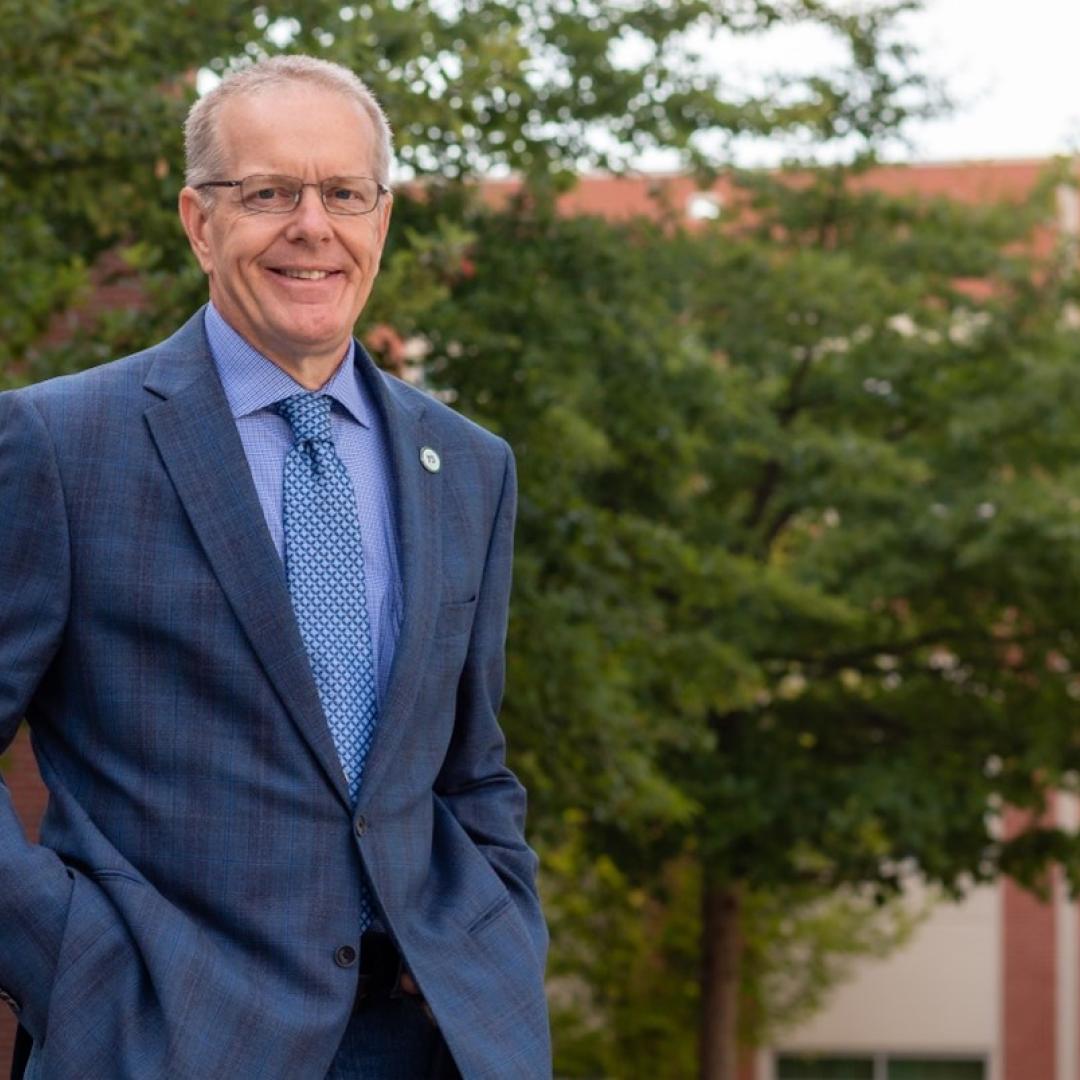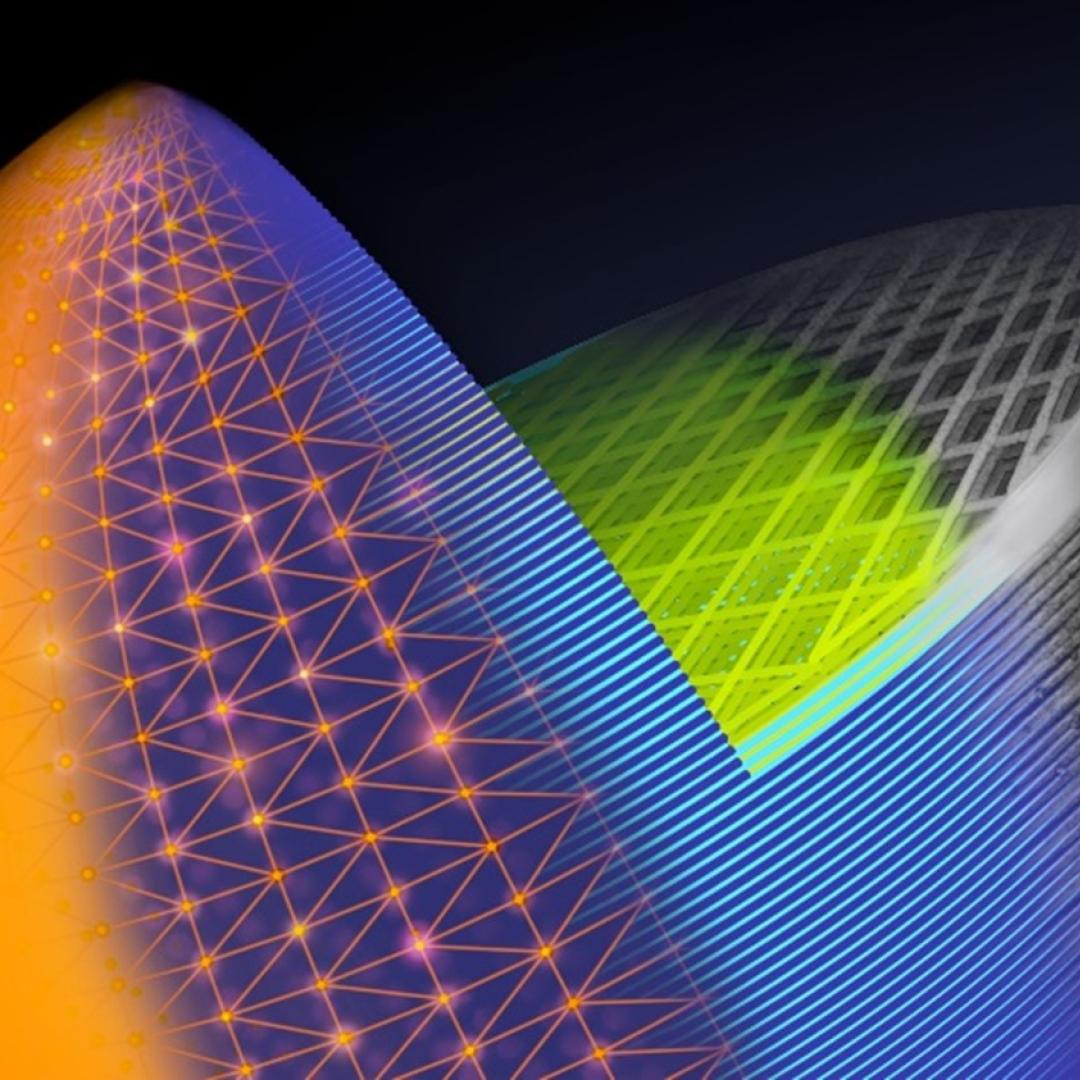
Filter News
Area of Research
- (-) Clean Energy (522)
- (-) Computer Science (19)
- (-) Fusion and Fission (54)
- (-) Materials (433)
- Advanced Manufacturing (34)
- Biological Systems (18)
- Biology and Environment (177)
- Biology and Soft Matter (5)
- Building Technologies (12)
- Chemical and Engineering Materials (4)
- Chemistry and Physics at Interfaces (11)
- Climate and Environmental Systems (14)
- Computational Biology (6)
- Computational Chemistry (5)
- Computational Engineering (5)
- Data (1)
- Earth Sciences (1)
- Electricity and Smart Grid (3)
- Energy Frontier Research Centers (14)
- Energy Sciences (5)
- Fossil Energy (3)
- Fuel Cycle Science and Technology (3)
- Functional Materials for Energy (16)
- Fusion Energy (17)
- Geographic Information Science and Technology (3)
- Isotope Development and Production (3)
- Isotopes (35)
- Materials Characterization (2)
- Materials for Computing (36)
- Materials Synthesis from Atoms to Systems (13)
- Materials Under Extremes (12)
- Mathematics (1)
- National Security (79)
- Neutron Data Analysis and Visualization (4)
- Neutron Science (190)
- Nuclear Science and Technology (74)
- Nuclear Systems Modeling, Simulation and Validation (3)
- Nuclear Systems Technology (1)
- Quantum Condensed Matter (4)
- Quantum information Science (9)
- Reactor Technology (1)
- Renewable Energy (4)
- Sensors and Controls (5)
- Supercomputing (311)
- Transportation Systems (11)
News Type
News Topics
- 3-D Printing/Advanced Manufacturing (89)
- Advanced Reactors (12)
- Artificial Intelligence (20)
- Big Data (11)
- Bioenergy (30)
- Biology (13)
- Biomedical (11)
- Biotechnology (4)
- Buildings (36)
- Chemical Sciences (35)
- Clean Water (10)
- Climate Change (23)
- Composites (19)
- Computer Science (49)
- Coronavirus (14)
- Critical Materials (19)
- Cybersecurity (11)
- Decarbonization (35)
- Energy Storage (86)
- Environment (65)
- Exascale Computing (5)
- Fossil Energy (2)
- Frontier (4)
- Fusion (27)
- Grid (42)
- High-Performance Computing (12)
- Hydropower (2)
- Irradiation (1)
- Isotopes (14)
- ITER (6)
- Machine Learning (14)
- Materials (95)
- Materials Science (92)
- Mathematics (3)
- Mercury (3)
- Microelectronics (1)
- Microscopy (29)
- Molten Salt (3)
- Nanotechnology (41)
- National Security (6)
- Net Zero (4)
- Neutron Science (43)
- Nuclear Energy (45)
- Partnerships (17)
- Physics (30)
- Polymers (21)
- Quantum Computing (3)
- Quantum Science (15)
- Renewable Energy (1)
- Security (8)
- Simulation (7)
- Space Exploration (6)
- Statistics (1)
- Summit (7)
- Sustainable Energy (73)
- Transformational Challenge Reactor (5)
- Transportation (70)
Media Contacts
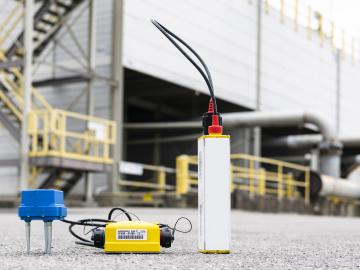
Like most scientists, Chengping Chai is not content with the surface of things: He wants to probe beyond to learn what’s really going on. But in his case, he is literally building a map of the world beneath, using seismic and acoustic data that reveal when and where the earth moves.
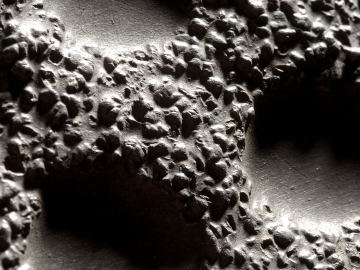
For more than 100 years, Magotteaux has provided grinding materials and castings for the mining, cement and aggregates industries. The company, based in Belgium, began its international expansion in 1968. Its second international plant has been a critical part of the Pulaski, Tennessee, economy since 1972.
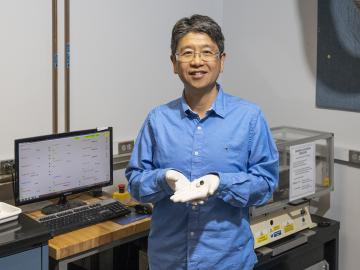
Scientists at ORNL have invented a coating that could dramatically reduce friction in common load-bearing systems with moving parts, from vehicle drive trains to wind

Stan David, retired scientist and Corporate Fellow Emeritus at the Department of Energy’s Oak Ridge National Laboratory, was awarded the Joining and Welding Science Award from the Joining and Welding Research Institute at Osaka University, Japan.
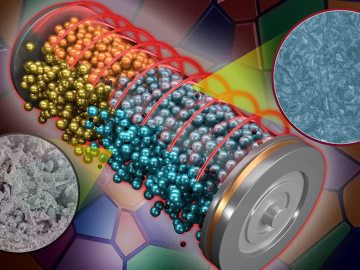
ORNL scientists found that a small tweak created big performance improvements in a type of solid-state battery, a technology considered vital to broader electric vehicle adoption.
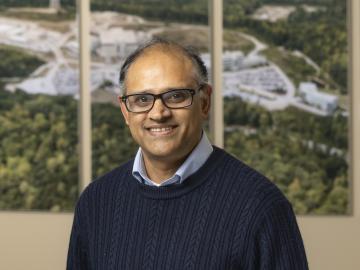
Having passed the midpoint of his career, physicist Mali Balasubramanian was part of a tight-knit team at a premier research facility for X-ray spectroscopy. But then another position opened, at ORNL— one that would take him in a new direction.
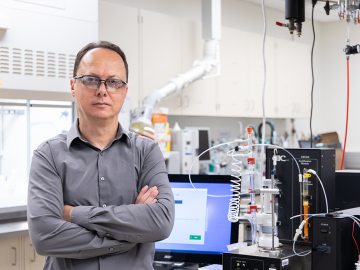
An innovative and sustainable chemistry developed at ORNL for capturing carbon dioxide has been licensed to Holocene, a Knoxville-based startup focused on designing and building plants that remove carbon dioxide
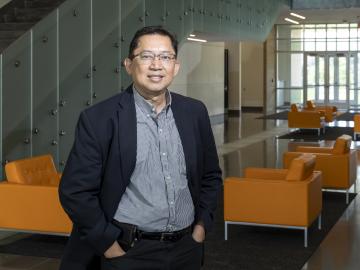
Rigoberto Advincula, a renowned scientist at ORNL and professor of Chemical and Biomolecular Engineering at the University of Tennessee, has won the Netzsch North American Thermal Analysis Society Fellows Award for 2023.
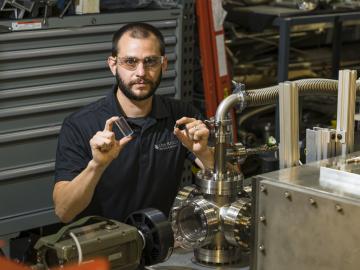
ORNL will team up with six of eight companies that are advancing designs and research and development for fusion power plants with the mission to achieve a pilot-scale demonstration of fusion within a decade.
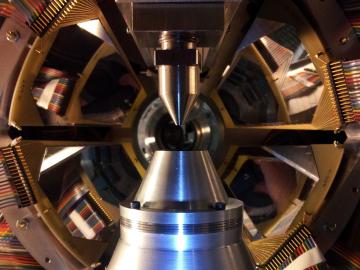
Led by Kelly Chipps of ORNL, scientists working in the lab have produced a signature nuclear reaction that occurs on the surface of a neutron star gobbling mass from a companion star. Their achievement improves understanding of stellar processes generating diverse nuclear isotopes.


